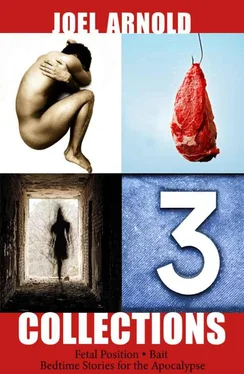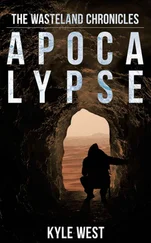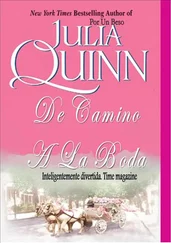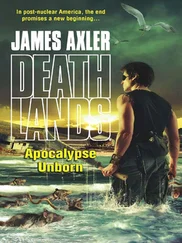One night though, just last week, they brought out another pledge who I recognized because it was one of the kids who would always smile and say, “Hi, Hank,” to me when he passed on by. Not only that, but he’d sometimes stop and talk to me, ask me how my day was going, how I was getting along in life. A real nice kid.
They had him wrapped in duct tape all the way up to his eyes, and I was wondering how he could even breath, but then I saw they’d poked a hole for one of his nostrils. His eyes looked scared as shit, and they laid him out and started smoking cigarettes, laughing and joking, and this boy all laid out on the pitchers mound looking like a gray piece of wire. Then when their cigarettes were almost sucked down to the butt, they put them out on his forehead and in his scalp, and you could smell the skin burning, but the sound of the sizzle was swallowed up by the crickets. They came over to where I was in the dugout smoking my own cigarettes, drinking my soda, and handed me a twenty-dollar bill.
“I can’t take that,” I said.
“What? Why?” they asked.
“No,” I said. “Not tonight.”
“Are you getting greedy?” one of the boys asked. “You want more money?”
“No,” I said, looking at him with my good eye. “You pay me to keep quiet and I don’t feel like keeping quiet about this one.”
“Are you crazy?” the boy asked. “You can’t tell anyone about this.”
“I don’t know, I just feel like telling someone, is all.”
The boy turned to the others, but they all shrugged. He pulled out a fifty dollar bill. “Take this,” he said. “And shut the hell up.” He tried to grab my hand, but I jerked it away.
“What’s your problem? You want us to send you back to the loony bin? You know we can do it.”
“No,” I said. “I don’t want to go back there.”
“Then take the goddamn money and shut the hell up.”
“He was just a nice boy is all,” I said. I looked at the twenty-dollar bill in his hand. “No,” I said. “You keep your money.”
“I’m serious,” the boy said. “You say a word about this, and we’ll get you sent right back to the crazy farm.”
I thought about it for a moment. I didn’t want to go back there. No way. But I also couldn’t take the boy’s money for hurting the kid like that, the same kid who always would say “Hi, Hank,” and smile, and ask me how my day had been. Like I was part of his family. I couldn’t take that money.
“Okay,” I said. “I’m not taking the money, but I won’t say anything to anybody.”
The boy looked at me like he didn’t really believe me, but then he nodded. “Have it your way. But remember who we are and what we can do to you.”
I looked away. I didn’t look up until I could hear that they’d left.
I sat back down in the dugout watching the kid lying there on the pitcher’s mound. His body was hitching up and down like he was still having trouble breathing. I could hear the ambulance in the distance, and then the sprinklers went on. The kid squirmed on the mound as the water came down upon him.
Sometimes you have to do your own balancing of the scales. Sometimes you have to adjust a little here, a little there. It’s hard to always know, though, which way the scales are leaning.
I decided to unwrap his face. Let him breath a little easier. I knew I didn’t have a lot of time, because the ambulance siren was getting pretty loud by now.
I had to tilt the scales back so they were even. I leaned down, the sprinklers soaking me through, and gently pulled the tape from his mouth. He sucked in a lungful of air. I could see the burn marks on his forehead, the singed strands of hair.
“Thank you,” he said.
“No,” I told him. “Thank you. Thank you for being so good to me.”
I pulled the aluminum bat from behind my back and beat him into the ground, tipping the scales back into balance.
He lives with his son in a cabin next to a cold, rusty river. The rust reminds Tab of blood spilled in the Mekong. His blood. His mother and father’s blood. Caught in a hail of bullets as they swam toward freedom. But that was many years ago, and this rust comes from the taconite processing plant twenty miles upstream.
His cabin has two bedrooms, a small living room, a kitchen, a bathroom, a fireplace that pops and hisses during the winter and the cool, spring nights. Tab wishes his wife was still alive. She always talked about living in a home with a fireplace.
The Kraemer River smells like fish and rust and pine. The walleyes and northerns are sparse, and those caught are thrown back in. The DNR says the mercury levels are too high, that eating the fish is dangerous. But sometimes Carl and Tab sit on the bank and throw in their lines and struggle with the slippery fish, reel them in with whoops of joy, admire them briefly, and throw them back in. It’s time like these when Tab feels he’s getting his son back.
Forest. Deer. Moss. Pine. The air tastes sweet and cool. The sun is a mellow orb through the trees, the rays neither harsh nor demanding. The forest can be dark, even when the sun is high in the clear sky, but the pine and birch branches shelter, not menace. A big change from New York City. No gangs. Carl is sixteen now.
“Are you bored here?” Tab asks.
“Sometimes.”
“What about your school friends?”
Carl shrugs.
Life is so much better here. During the year, Carl became involved in basketball, his grades improved. Good people here.
Carl says, “People in school call me a gook.”
Tab’s smile vanishes. “What? Why is this the first time I’m hearing this? Who calls you that?”
“Some of the kids.”
“Which kids?”
“I don’t know. It doesn’t matter, anyway.”
“When did they call you this?”
“A bunch of times.” Carl looks at his father, his eyes steady and cold. “I didn’t tell you because I didn’t want us to move again.”
“You know why we moved.”
“I liked New York. I had friends there.”
“Thugs and hooligans. We live here now. These are good people. Maybe some are ignorant, but soon they’ll see we’re good people, too.” Tab smiles encouragingly at his son. “We’ll survive here. We will, Carl. We’ll survive.”
An aluminum canoe with fading red paint washes up on shore while Tab and Carl cast their lines to the river’s poisonous fish. There is crude lettering on the bow. FARBANTI. There are dents, too, but they can be pounded out with a rubber mallet.
“Help me push this out into the river,” Tab says.
“Why don’t we keep it?”
“Because. Maybe someone is waiting for it.”
They slide it over the muddy bank into the water where the current takes hold. It straightens like the needle of a compass, and disappears into the evening’s dim light.
New York. As many people as insects. Ceaseless noise.
But this is where Tab married. Where Carl was born. Where Mina died.
One sweltering night, when Carl was only fourteen, there was a knock on the apartment door. Rare to get visitors. Tab opened the door a crack, leaving the chain attached.
Carl. In handcuffs. Smelling of beer. Cigarettes. A cut on his face. An ugly bruise. Suspended between two policemen.
“This your kid?”
Tab unlatched the chain and opened the door wide. “Yes, this is my son.”
“We saw him jump out of a van, throw a punch at a college student. When we intervened, the van took off.”
“Is this true?” Tab asked.
Carl’s jaw was set. He stared at the floor, breathing sharply through his nose.
“He said it was his initiation into the Laughing Tigers. A Vietnamese gang.”
“We’re Cambodian. American, now.”
Читать дальше












